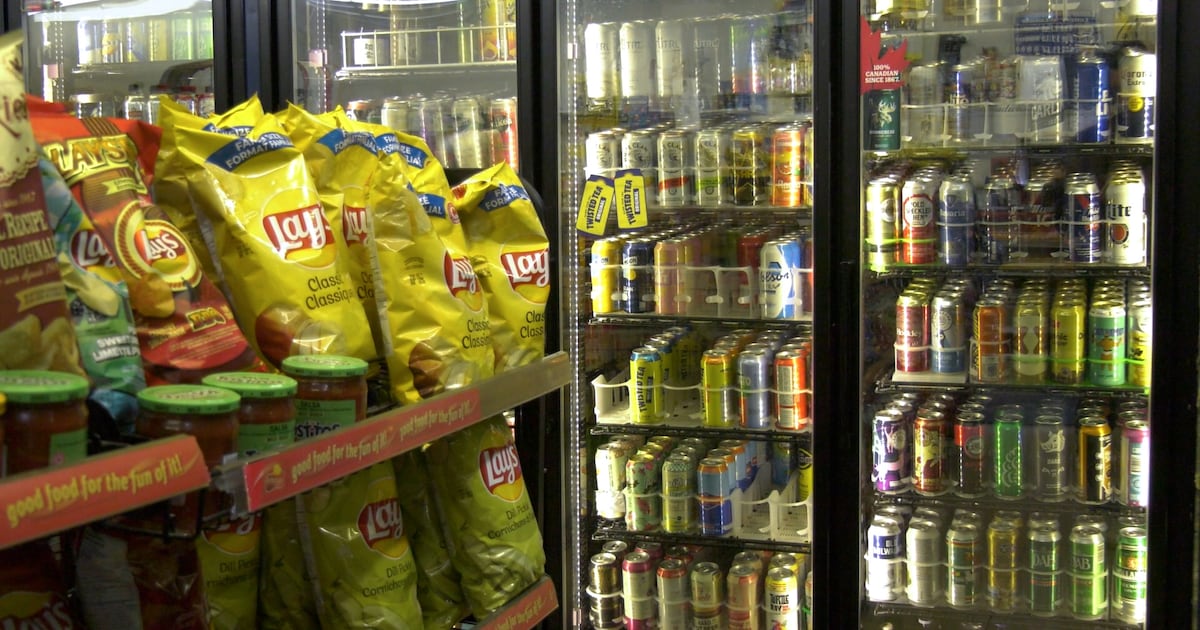Business
Ontario Convenience Stores Report 12% Sales Surge After Alcohol Sales Approval

Ontario’s convenience stores have experienced a significant sales boost one year after the provincial government approved alcohol sales in these establishments. The decision, made by the Ontario government, has allowed approximately two-thirds of the province’s 7,500 convenience stores to sell alcoholic beverages since the policy was implemented.
According to the Convenience Industry Council of Canada (CICC), the introduction of alcohol sales has positively impacted business for many stores. “We knew it was going to be good for our business, and frankly, it saved some stores from closing,” stated Anne Kothawala, President and CEO of the CICC. Kothawala emphasized that the availability of alcoholic products has transformed convenience stores into preferred shopping destinations, especially during holidays and long weekends.
Sales data reveal a robust 12 percent increase in overall sales, largely attributed to heightened foot traffic. Notably, this increase jumps to approximately 33 percent during peak periods such as Canada Day, Victoria Day, and Labor Day.
Local store owners have echoed these findings. Michael Kidane, who operates the Iris Food Market in Ottawa’s Pinecrest neighbourhood, has witnessed a tangible increase in customers since adding beer to his inventory. “Our community’s a little bit of a low-income area, so they don’t spend that much money. But now I see the difference after we’ve added beer,” Kidane told CTV News Ottawa. He noted that customers buying beer often purchase additional items, resulting in a growth rate of 10 to 20 percent for his store.
While the initial boost in sales has been welcomed, Kothawala indicated that some operational challenges still exist. The ordering process for alcoholic beverages needs improvement to enhance efficiency and reduce costs for store owners. “These stores are quite small. So, we have a real issue when it comes to deliveries of products, especially leading up to, for example, a long weekend where demand is going to be higher,” she explained. The limited storage space in small convenience stores forces owners to order products more frequently, which can lead to increased expenses.
Looking ahead, adaptations will be necessary for convenience stores selling alcohol. Starting on January 1, 2024, these establishments will be required to accept empty bottles and cans as part of the Ontario Deposit Return Program. This new regulation aims to promote recycling and sustainability but could pose additional logistical challenges for store owners.
As Ontario’s convenience store sector continues to navigate this evolving landscape, the initial success of alcohol sales suggests a promising future, provided that operational hurdles can be effectively addressed.
-

 World3 months ago
World3 months agoScientists Unearth Ancient Antarctic Ice to Unlock Climate Secrets
-

 Entertainment3 months ago
Entertainment3 months agoTrump and McCormick to Announce $70 Billion Energy Investments
-

 Lifestyle3 months ago
Lifestyle3 months agoTransLink Launches Food Truck Program to Boost Revenue in Vancouver
-

 Science3 months ago
Science3 months agoFour Astronauts Return to Earth After International Space Station Mission
-

 Technology2 months ago
Technology2 months agoApple Notes Enhances Functionality with Markdown Support in macOS 26
-

 Top Stories1 week ago
Top Stories1 week agoUrgent Update: Fatal Crash on Highway 99 Claims Life of Pitt Meadows Man
-

 Sports3 months ago
Sports3 months agoSearch Underway for Missing Hunter Amid Hokkaido Bear Emergency
-

 Politics3 months ago
Politics3 months agoUkrainian Tennis Star Elina Svitolina Faces Death Threats Online
-

 Technology3 months ago
Technology3 months agoFrosthaven Launches Early Access on July 31, 2025
-

 Politics3 months ago
Politics3 months agoCarney Engages First Nations Leaders at Development Law Summit
-

 Entertainment3 months ago
Entertainment3 months agoCalgary Theatre Troupe Revives Magic at Winnipeg Fringe Festival
-

 Politics2 weeks ago
Politics2 weeks agoShutdown Reflects Democratic Struggles Amid Economic Concerns


















